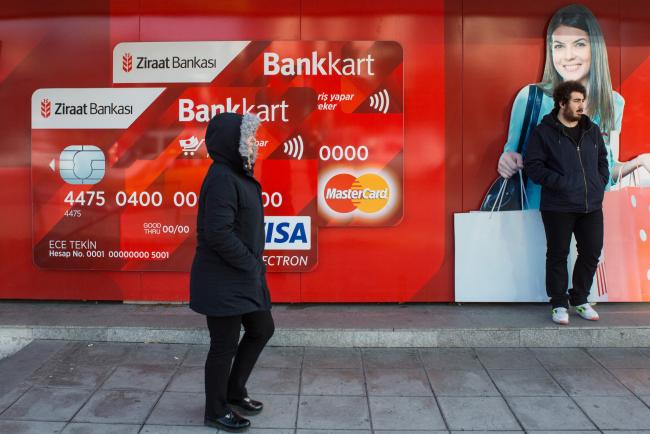Street Calls of the Week
(Bloomberg) -- Turkey has just committed to the biggest plan to bolster its banks since a financial crisis 18 years ago almost wiped out the industry.
The government will inject fresh capital into state-owned lenders and oversee the formation of two funds to take on some bad loans to help the sector, Treasury and Finance Minister Berat Albayrak told reporters in Istanbul. The finance chief unveiled the measures as part of a package of reforms aimed at resurrecting the recession-hit economy, with banks struggling to escape a rising pile of bad loans and increased demands from companies to restructure their debt.
In an effort to sustain the flow of credit into the economy, the government will issue 28 billion liras ($4.9 billion) of special-purpose bonds and place them at state banks, Albayrak said. That’s the biggest price tag since Turkey spent $77 billion to rescue lenders after the 2001 financial crisis, and marks the second time the government is shoring up the battered books of its lenders after last year’s currency crash.
“This plan will increase the debt burden on the Treasury,” said Hakan Ozyildiz, a former deputy undersecretary at the ministry. “In 2001, the same type of bonds were issued to cover the state’s losses. This time around, they are being issued because loans that were extended to private companies can’t be collected. That’s the difference.”
The lira was volatile after Albayrak’s comments as investors weighed the benefit of a stronger banking sector against increasing liabilities on the government’s balance sheet. The currency was trading 0.1 percent stronger at 5.6911 to the dollar as of 12:06 p.m. in Istanbul, after earlier falling as much as 0.5 percent to 5.7221.
Shares of state banks rose. Turkiye Halk Bankasi AS gained as much as 4.3 percent to its highest level since March 27, while Turkiye Vakiflar Bankasi TAO increased as much as 1.3 percent, helping the Borsa Istanbul 100 index trim losses to 0.2 percent.
Capital buffers will be strengthened once the new plan is implemented, Albayrak said, adding that private lenders are working separately on their own plans to raise capital and will do so when needed.
His road map also included programs to reorganize soured real estate and energy borrowings through debt and equity swaps. Banks will work to carve out non-performing loans in the sectors and transfer them to two funds, which will be run by banks as well as local and international investors.
The non-performing loans ratio of 4.2 percent “is considered a very good level by our counterparts” and banks, Albayrak said. “We’re taking a step that will further enhance the quality of assets of the sector.”
